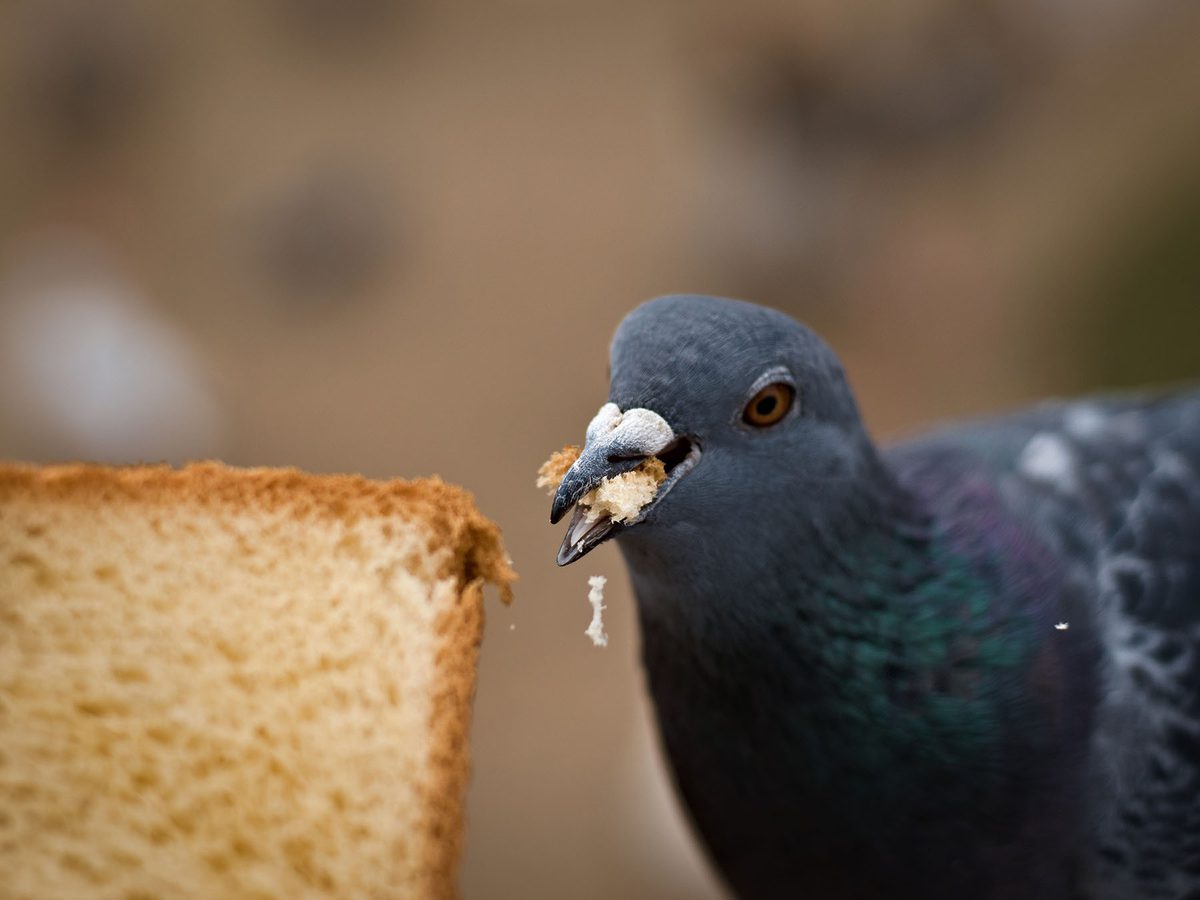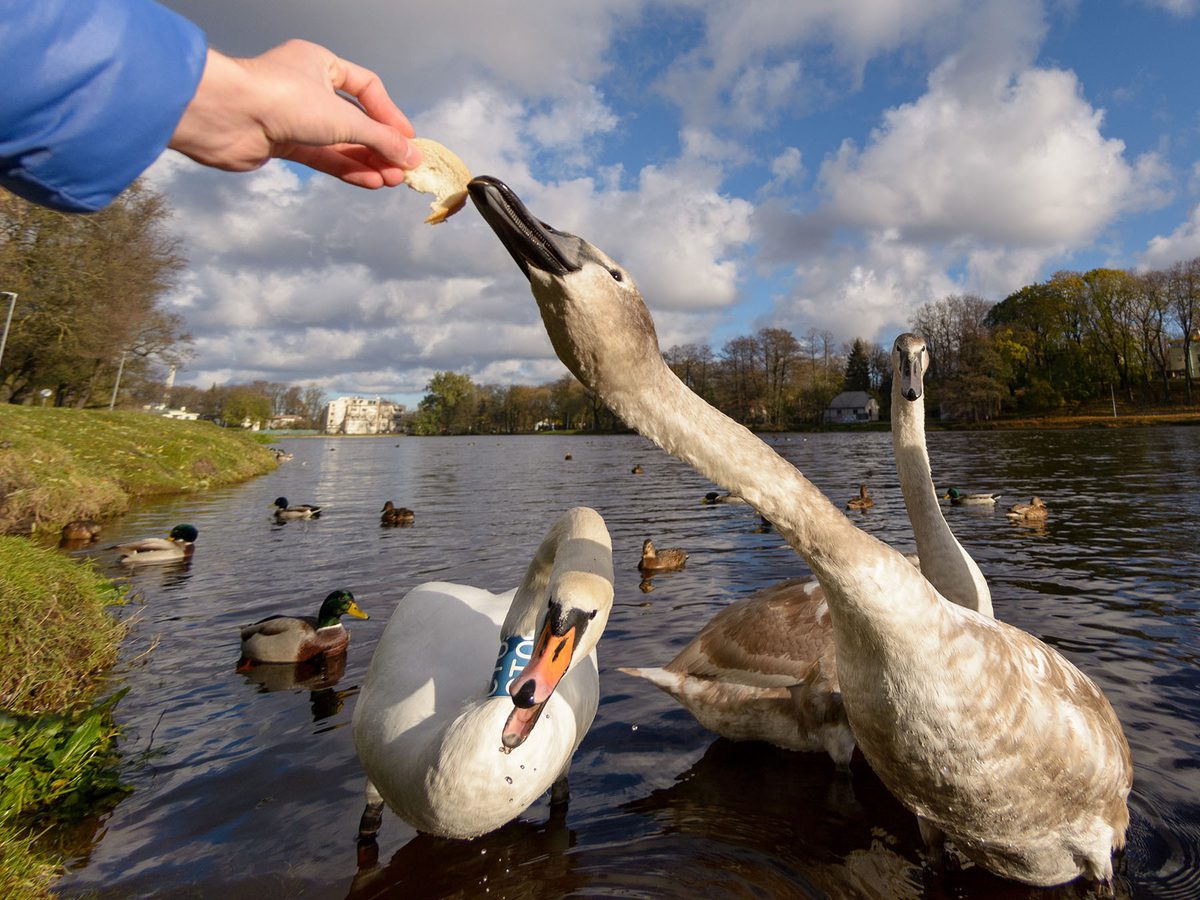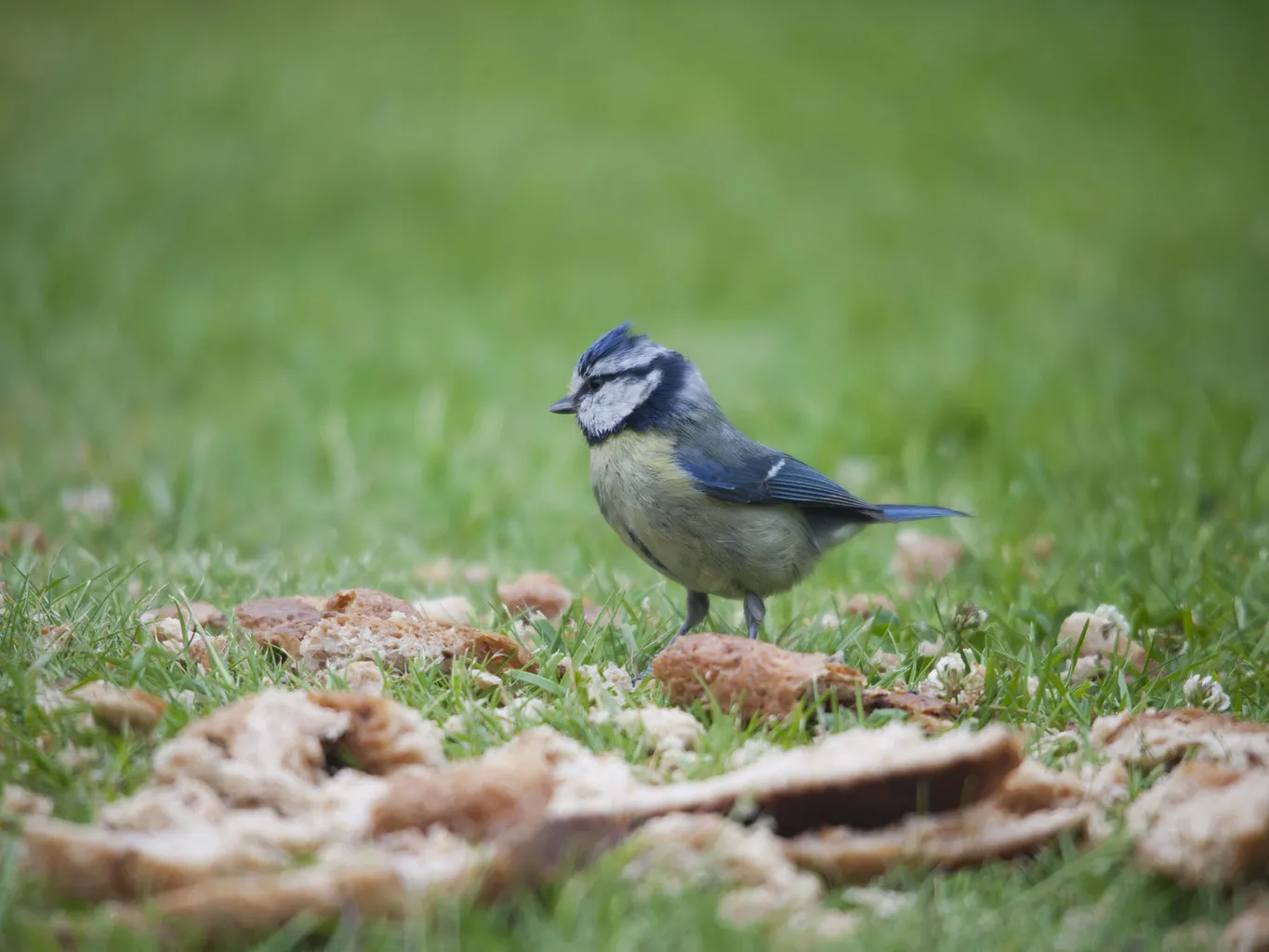Many of us may have spent our childhoods feeding bread to ducks at the local pond or leaving breadcrumbs out on a bird table for backyard visitors in the winter months. But recent advice has been that bread is actually unhealthy for birds to eat, and we should avoid offering it.
So is bread really bad for birds? Or can birds eat a small amount of bread with no problem? We’ll be looking at these questions and more, so please read on if you’d like to find out the answers.
It’s not recommended to feed bread to birds, and this is for a number of reasons. Bread doesn’t offer any nutritional value to a bird. It will fill them up, but not provide any essential nutrients or benefits needed for them to stay healthy, and they will not seek ‘better’ foods if they are already full.
Bread is kind of like 'junk food for birds,' and when offered bread, many birds will then ignore healthier choices such as grains, nuts, suet, and seeds.
As there is no protein or fat in bread, which are both vital in giving birds the energy they need to survive, it is a poor choice as food for birds as it can mean they quickly become undernourished and potentially very unwell.

Birds will happily eat bread, as it's almost like their version of junk food
In addition to bread offering little to no value to a bird’s diet, there are some more serious reasons to discourage birds from becoming dependent on breadcrumbs or crusts.
Some potentially serious health issues are associated with feeding birds moldy bread, and waterfowl, in particular, are at risk of becoming severely unwell when they eat too much bread.
Let’s take a look at some of the complications associated with feeding birds bread, and whether there are any circumstances under which it’s ok to put your sandwich scraps out for visitors to your backyard.

Generally speaking, it's not a good idea to feed birds bread
Why do birds like bread so much?
It’s the age-old question, similar to why some humans may opt for junk food or a quick sugar fix.
Bread tastes good to birds, despite not being of any particular nutritional value. A breadcrumb feast will quickly satisfy a hungry bird’s appetite, and leave little room or desire for healthier foods.

Feeding Swans bread is a past-time for many families - really, you should avoid feeding them bread, as nutritionally, there's no benefits
What to feed birds instead of bread?
There are so many better and healthier options available that birds can be offered rather than breaking out the breadcrumbs. When feeding wild birds, it’s a much wiser option to go for foods that mimic their natural diet.
Grains, seeds, nuts, fruit, and mealworms are popular choices that will attract a variety of birds to your backyard. Some birds will be drawn to nectar feeders, while in winter, offering suet will provide birds with a high-energy snack to boost their chances of survival in colder weather.

Consider feeding wild birds, including ducks, swans and geese, with nuts, grains and fruits instead
Is it dangerous to feed ducks bread?
Waterfowl are at particular risk when overfed with bread. Many people will have fond childhood memories of heading to a lakeside armed with breadcrumbs to feed ducklings, swans, and geese. But from a health point of view, a bread-based diet is bad news, and not only because of the risk of malnutrition due to lack of nutrients.
Ducks that eat too much bread can develop a condition known as ‘angel wing’, as they lack protein and vitamins needed for normal growth of bones and feathers. This incurable condition causes their wings to become twisted, and flying is impossible.
There are also associated health risks caused by bread that has been left to become damp, or chunks of bread that have sunk to the bottom of a lake or pond.
If ducks eat soggy bread that has started to develop fungal spores or grow bacteria, there are significant risks of respiratory infections and avian botulism, which can cause widespread death among duck communities.

Ducks will happily take bread off you, but there is risk of malnutrition to them
Can birds eat stale bread?
While a limited amount of fresh bread, shredded into tiny crumbs and offered alongside other foods is just about ok to be offered on an occasional basis, moldy bread is a total no-no. Moldy bread is toxic to birds, and contains fungal spores that cause Aspergillosis, a potentially fatal avian respiratory infection.
Stale bread without a presence of mold can be eaten, but adds little-to-no nutritional benefit to a bird’s diet, unless it’s a wholegrain or seeded variety. As bread hardens as it becomes less fresh, eating chunks of stale bread may also pose a choking hazard.

If feeding bread, a little bit of Wholemeal bread is probably the best choice
Can birds have a little bit of bread?
In moderation, a little bit of bread is ok, but you should always offer a variety of other foods, including grains, seeds, nuts, and fruit as well, to avoid birds becoming too full or dependent on something that does not provide the nutrients they require.
Wholemeal bread, containing seeds and grains, does bring some benefits, and an even better option would be to provide bread that is spread with peanut butter or suet dripping, coated with birdseed, and chopped into tiny pieces. This ensures that a bird gets their ‘bread fix’ while at the same time, providing additional protein and fat.
Bread flavored with onions, salt or garlic should be avoided at all costs, as these can lead to dehydration and other complications, including anemia and general weakness.

Seagull flying off whilst eating bread
FAQs
Can birds eat sourdough bread?
Essentially, there is no reason why sourdough bread cannot be eaten by birds if offered in moderation. As with all bread, it does not offer any real nutritional benefit to a bird’s diet, but in the winter months, tiny scraps of any food will be welcomed.
Sourdough bread that is not at its freshest is the safest idea, as the moist, chewy texture of newly baked sourdough would make it hard for birds to digest.
Can birds eat wholemeal bread?
If you’re going to offer a bird a small amount of bread, then the healthier options for humans would also be the most suitable choice for birds, including wholegrain, multigrain, or seeded bread.
As with all bread-based products, including bagels, baguettes, and pretzels, wholemeal bread is still a highly processed food, and many safer and more suitable options for feeding birds are readily available.
